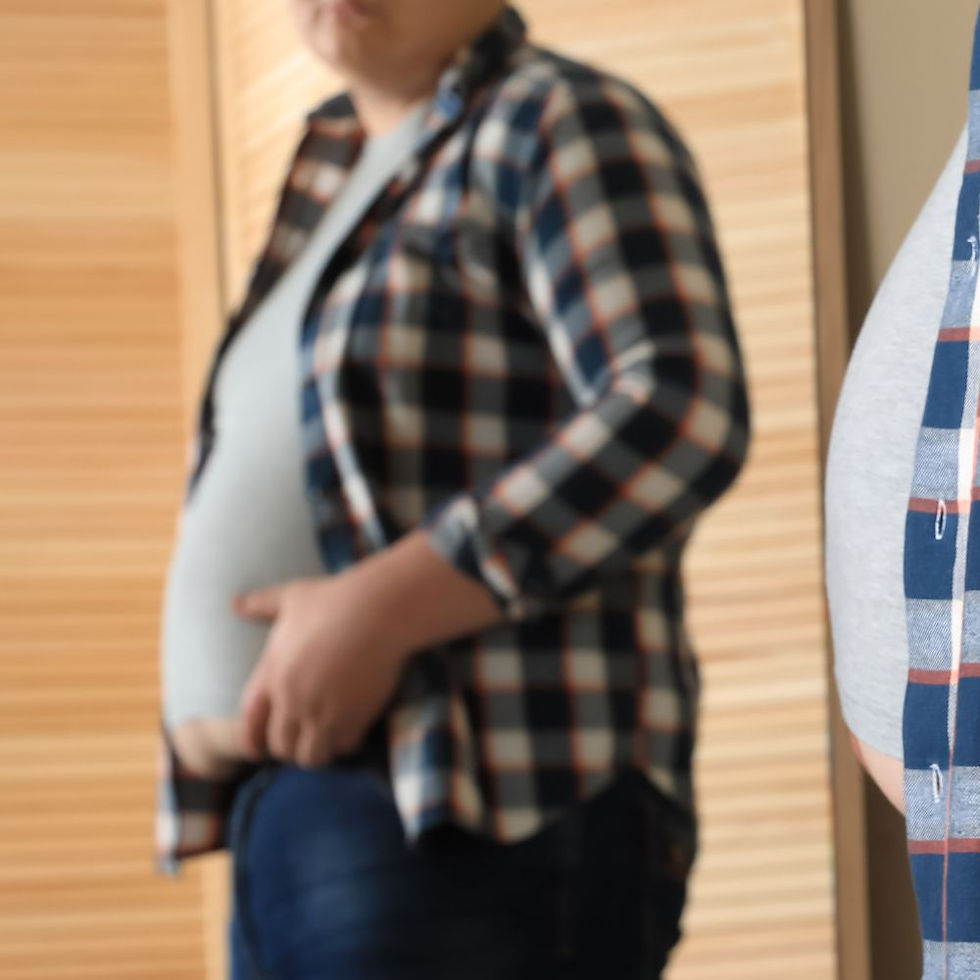.jpg)
Don’t Rush to Increase Your Dose
It can be tempting to think “more is better”, that going up to the next level is automatically the goal.
But that’s not true for everyone.
If you’re on what’s considered a lower dose and you’re already seeing your food noise quieten, your appetite under control, and meals feeling manageable, you don’t have to increase just because it’s “time.”
You can stay on that dose for another month and see how it goes.
Many prescribers are very happy to review progress month by month, keeping you at the lowest effective dose for as long as it’s working.
Why? Because the goal isn’t to rocket to the top dose as fast as possible. It’s to find the sweet spot where you get enough appetite control without unnecessary side effects.
What Happens When You Talk to Your Prescriber?
A good prescriber expects these conversations, and your job is to be honest about what you’re feeling.
✅ Tell them about any changes in appetite.
✅ Be specific about side effects.
✅ Share if you’ve noticed changes in your eating patterns, energy, or mood.
They may suggest:
Increasing your dose gradually if hunger is returning
Holding steady at your current dose if it’s working
Reducing your dose if side effects are too strong
Taking a break or even stopping if it’s no longer safe or right for you
And that’s not a failure. It’s the entire point of working with a prescriber.
Listening to Your Body
It’s easy to get so focused on the number on the scale that you ignore what your body is telling you.
But this is your chance to build a healthier, more sustainable relationship with food and with yourself.
If something doesn’t feel right? Don’t ignore it. Don’t hope it will magically fix itself.
This medication is a tool, and you get to decide how it’s used. Being proactive, honest, and willing to adjust is a sign of real commitment, not weakness.
One Last Thought
There’s no prize for “toughing it out” on the highest dose you can handle.
Being less overweight is never more important than being healthy and nourished.
So talk to your prescriber.
Be open.
Be honest.
Be your own best advocate.
Because this journey isn’t about punishment or restriction, it’s about finding the freedom to live your life, with the support you deserve. 💛
Why Your Dose Changes Over Time
Most people don’t stay on the starter dose forever.
For many, lower starting doses are there to help your body adjust with fewer side effects. Once you’re tolerating it, your prescriber may increase it to improve appetite suppression.
But going higher isn’t always the answer. Some people find that at higher doses, the appetite suppression becomes too strong. That’s not success, it's a sign the balance is off.
If you can’t eat enough to nourish yourself, if you’re feeling lightheaded, faint, or constantly nauseous because you physically can’t get food down, that’s not “just the meds working.”
That’s a red flag.
How Do You Know the Dose You’re On Is the Right Dose?
This is such an important question, and it doesn’t get asked enough.
The right dose isn’t the highest you can tolerate. It’s the one where you see meaningful, sustainable change while still feeling like you.
✅ Your appetite is reduced, but you can still eat enough to nourish yourself.
✅ Food noise is quieter, but you’re not afraid of meals.
✅ You feel in control, without feeling punished or starved.
✅ Side effects are manageable, and they do not stop you from living your life.
✅ Your energy levels are stable, and you can go about your day without crashing.
If you’re ticking those boxes, chances are you’re on the right dose for you , no matter what someone else is taking.
It’s not a race to the top; it’s about finding the balance that actually supports your health and goals in real life.
Signs You Might Need to Talk About an Adjustment
Everyone is different, but here are some of the most common signs it might be time to chat with your prescriber:
When It Might Be Too Low
Food noise is returning in a big way
Hunger feels much stronger than before
Portion sizes creeping back up
Cravings are getting harder to manage
Weight loss has completely stalled (especially if you’re also noticing those other signs)
These aren’t personal failures. They’re your body telling you the current dose might not be enough.
It’s also worth knowing that a mild return of these signs is expected toward the fourth week on a given dose. That’s often your body’s signal that it may be time to consider increasing, if your prescriber agrees.
But if you’re not experiencing these signs at all, if your food noise is quiet, your appetite feels managed, and you’re staying consistent, that can be a sign you’re on a good dose for you right now. In that case, there’s no rush to increase. Many people find it works well to stay on the same dose for another month.
When It Might Be Too High
You’re feeling constantly nauseous with no relief
You’re lightheaded or faint from not eating enough
Appetite suppression is so strong that you can’t get enough food in
You’re losing weight too quickly in an unhealthy way
Energy levels are crashing because you simply can’t fuel yourself
This is important. Weight loss isn’t the only goal here. Staying nourished and healthy matters just as much, if not more.
If the dose is too high, you’re not “being good” by toughing it out. You could be putting your health at risk.
Disclaimer: This article is for general information only and isn’t medical advice. Always talk to your prescriber or GP about any concerns with your medication, side effects, or dose changes. They're there to help you make safe, informed choices.
Let’s Talk About Dose Adjustments
Starting a GLP-1 like Ozempic, Wegovy, or Mounjaro can feel like a big step, and honestly, it is. But the journey doesn’t stop once you start.
One of the most important (but rarely talked about) parts of staying on these medications is finding the dose that actually works for you.
Not “the biggest dose.”
Not “the dose everyone else is on.”
Your dose.
Because everyone’s body is different. And the right dose isn’t about willpower or pushing through side effects, it’s about getting the balance right between appetite control and living well.
Dose Changes Are Normal, Not Failure
This is something many people worry about.
Needing a dose adjustment doesn’t mean you’ve “failed” or that the medication isn’t working. Most providers expect to adjust your dose over time.
Your body changes, your needs change, and your prescriber is there to help you respond to those changes.
It’s not a test of willpower. It’s a medical treatment, designed to be tailored to you.
Bite-Sized Podcasts
Listen to this article as audio

Published:
2 Jul 2025
Updated:
6 Oct 2025
Signs You May Need a Dose Adjustment on Your GLP-1
Staying On Track
.jpg)
Helpful Companions For Your Weight Loss Journey
From meal ideas to daily tracking, these digital tools are designed to make life on GLP-1s a little easier.









.jpg)

.jpg)